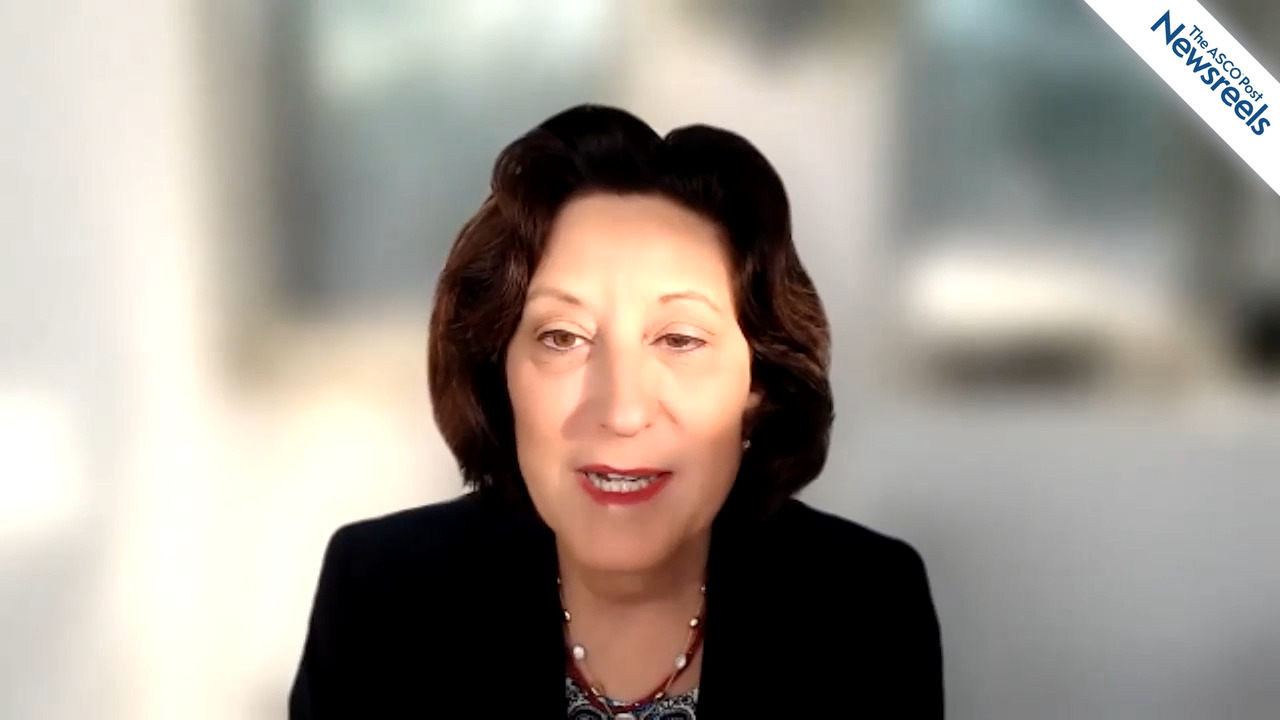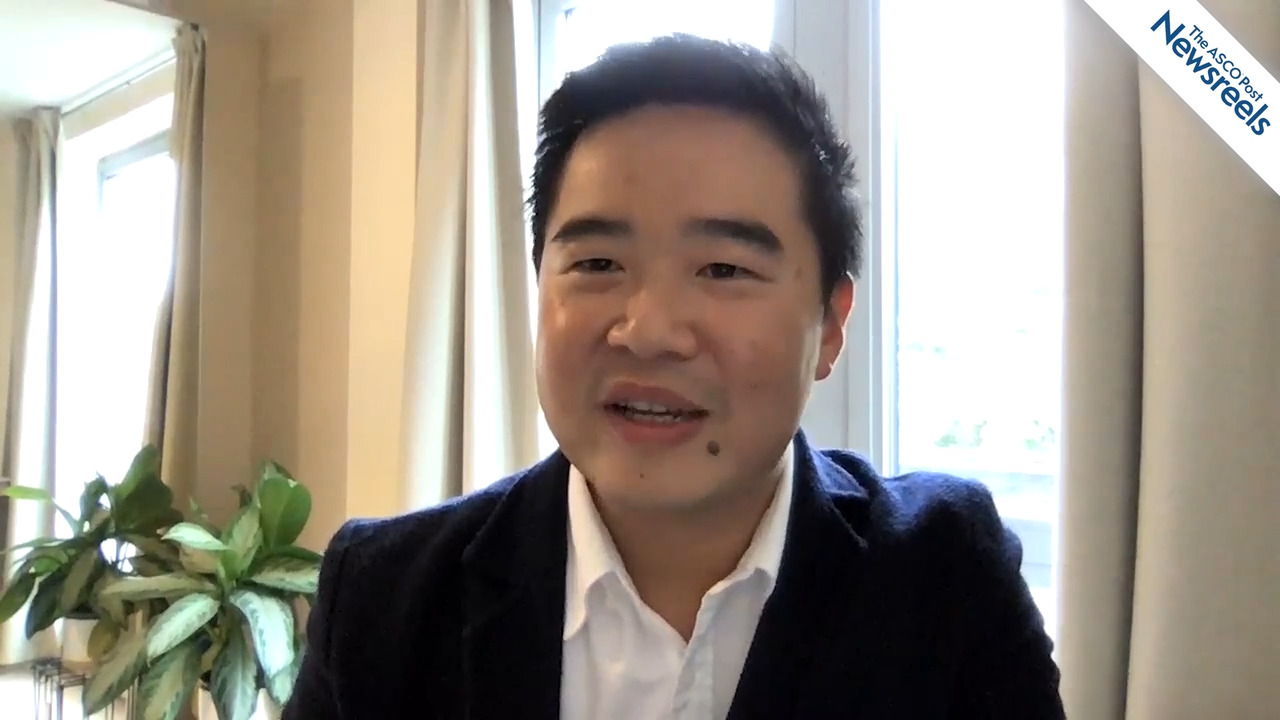Jason J. Luke, MD, on Melanoma: KEYNOTE-716 Trial of Pembrolizumab vs Placebo
ESMO Congress 2021
Jason J. Luke, MD, of UPMC Hillman Cancer Center, discusses phase III results showing that adjuvant pembrolizumab for patients with resected stage IIB and IIC melanoma decreased the risk of disease recurrence or death by 35% compared with placebo. It was also associated with significantly prolonged recurrence-free survival (Abstract LBA3).
The ASCO Post Staff
Hope S. Rugo, MD, of the University of California, San Francisco, discusses phase III results from the KEYNOTE-355 study of pembrolizumab plus chemotherapy, which improved overall survival vs chemotherapy alone in patients with previously untreated locally recurrent, inoperable, or metastatic triple-negative breast cancer whose tumors expressed PD-L1 (Abstract LBA16).
The ASCO Post Staff
Jonathan Lim, MBBS, MRCP, of Christie NHS Foundation Trust and the Francis Crick Institute, discusses results of an ESMO survey, which showed that the risk of poor well-being, distress, and burnout has continued to rise since the onset of the COVID-19 pandemic, despite improved job performance and sustained resilience. Those most at risk, he says, are women aged 40 years and younger (Abstract 561O).
The ASCO Post Staff
Nicoletta Colombo, MD, of the Istituto Europeo Oncologico, discusses phase III results that showed improvements in progression-free and overall survival with a combination of pembrolizumab plus chemotherapy, compared with placebo and chemotherapy, for patients with persistent, recurrent, or metastatic cervical cancer. These benefits were seen regardless of PD-L1 expression and concomitant bevacizumab use, suggesting that pembrolizumab plus chemotherapy, with or without bevacizumab, may be a new standard of care for this population (Abstract LBA2).
The ASCO Post Staff
Susana N. Banerjee, MBBS, PhD, of The Royal Marsden NHS Foundation Trust, discusses phase I results that have generated interest in the combination of the RAF/MEK inhibitor VS-6766 and the FAK inhibitor defactinib for patients with recurrent low-grade serous ovarian cancer, a disease that typically has limited response to conventional chemotherapy and hormonal therapy. The data support ongoing investigation (Abstract 725MO).
The ASCO Post Staff
Joseph M. Unger, PhD, of Fred Hutchinson Cancer Research Center, discusses findings from his study of the National Cancer Institute’s Clinical Trials Network, which has conducted publicly funded cancer research for more than 50 years. The substantial gains in life years for patients with cancer, he says, supports the critical role of government-sponsored cancer research (Abstract 1503O).





